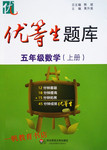题目内容
He saidthat his bike ________ stolen and he ________ have to telephone the police.
- A.was; would
- B.has; will
- C.has been; will
- D.had been; would
D
间接宾语时态
间接宾语时态

练习册系列答案
 优等生题库系列答案
优等生题库系列答案
相关题目
| 完形填空。 | ||||
| The child in the hospital bed was just waking up after having a throat (喉咙) operation. His throat 1 , and he was afraid. However, the young nurse 2 by his bed smiled so 3 that the little boy smiled back. He 4 to be afraid. The young nurse was May Paxton 5 she was deaf (聋的). May Paxton graduated 6 the Missouri School for the Deaf near the year 1909.Three years 7 she went to see Dr. Richard son about 8 a nurse. Dr Richardson was one of the founders of Mercy Hospital of Kansas City. 9 had never heard of a deaf nurse. She told May that her 10 would be very low and that the work would be 11 . However, May said that hard work did not frighten her. Dr. Richardson was 12 her, and accepted May as a student nurse. Dr. Richardson never 13 her decision 14 , she was so pleased with May's work that she later accepted two other deaf women as student nurses. The 15 was Miss Marian Finch, who was hard of 16 . The second was Miss Lillie Bessie. These three were 17 "the silent angles (天使) of Mercy Hospital" during the 18 they worked there. Dr. Richardson often 19 her faith in the girls' ability to learn nursing. She wrote to May, "For three years, you have been with us… It is wonderful to me that no man, 20 or child ever, to my knowledge, made a complaint (投诉) against you…" | ||||
|
| 完形填空。 | ||||
| Twelve years ago, my mother gave birth to the beautiful little girl. 1 , we were later given the 2 that this little girl, who was three and a half month old, would only have 14 days on earth. It's hard to understand what kind of 3 you have when you find out that you're 4 something that you don't even know. As time went on, the number of days kept growing, which gave us 5 . When the doctors said that we could take her home, that was 6 reality hit. We had no 7 . I'm from a small town with small hospitals, but when you don't have money, you just don't 8 it. My mother tried for days to get money, but nothing 9 each time. A caseworker (社会工作者) was even doing her best. It's 10 that it almost felt as if we had to 11 a baby from the hospital. One day the caseworker walked into her boss's office to 12 again. As she walked out, 13 down yet again, out of no where a man walked up to her. He 14 her a handful of money and said, "Please give this to the lady in 15 , so she can take her daughter home." She looked down at her hand with tears in her eyes. As she looked back up to thank him, he was 16 . They searched all over the hospital and he was nowhere to be 17 . Thanks to the guy that I will 18 know, we could take home that 19 baby girl that was only given 14 days to live, and celebrated her 12th birthday yesterday. I am grateful to this man and feel that his act of 20 should be shared with everyone. | ||||
|
 fast and that she must be there at six every
fast and that she must be there at six every